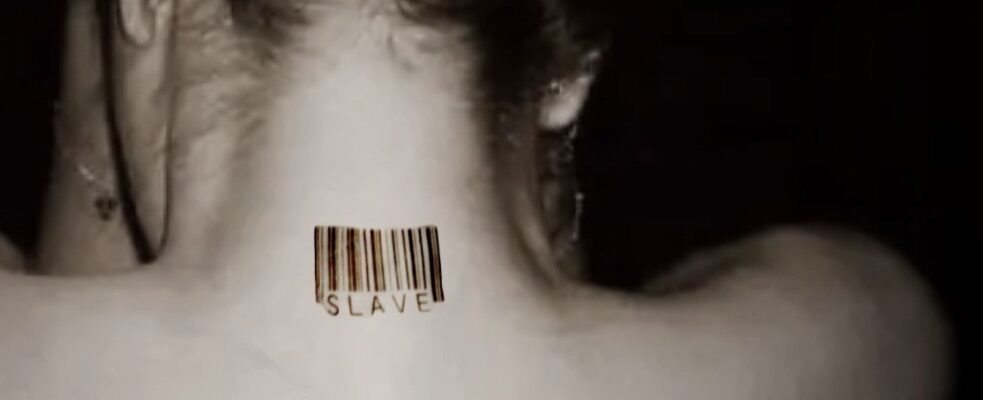If you ever have the opportunity to spend two-and-a-half hours squirming uncomfortably in your chair, cringing with embarrassment, shaking your head in disbelief, and seething with anger, please attend a presentation about human trafficking offered by Billings activist Penny Ronning.
That full spectrum of emotion should provide incentive to get educated and take actions that will help alleviate the pain and suffering endured by the victims. And it should at the same time provide incentives to ensure that the perpetrators get lengthy sentences for their most heinous of crimes against humanity.
I accompanied my daughter, an activist in her own right, to Montana State University’s Procrastinator Theater earlier this past week. The Yellowstone Human Trafficking Task Force, a non-profit co-chaired by Ms. Ronning, was hosted by The HEART Initiative, a student organization that was formed in 2016 to help increase awareness and education of human trafficking in Gallatin County and beyond.
It wasn’t that long ago that I didn’t know a thing about human trafficking, so it was quite enlightening to hear Ms. Ronning speak. While her expertise is vast, it is her commitment to the cause that impresses most. She, along with my daughter and handfuls of other devoted men and women around Montana, want us to better understand the problem.
Simply put, human trafficking is the business of stealing freedom for profit.
In some cases, notes the Polaris Project, “traffickers trick, defraud or physically force victims into selling sex. In others, victims are lied to, assaulted, threatened or manipulated into working under inhumane, illegal or otherwise unacceptable conditions.
“It is a multi-billion dollar criminal industry that denies freedom to nearly twenty-five million people around the world.”
The fact that such vile behavior even exists is difficult to imagine. It knows no politics, but it deserves our efforts at the local, state and national levels to properly fund and police the problem. With limited resources, it demands our vigilance to protect our children from this most unfathomable crime. We need to push for legislation that will help curb the violations against our children.
The following poem, written by a survivor of human trafficking, captures the essence of the pure evil that can befall our children.
Photo illustration by Courtney A. Liska
AMERICA’S DAUGHTERS (Credit: The Polaris Project)
She was four years old the first time a man looked at her the way a man looks at his wife on their wedding day.
Little girls are supposed to dream about being models and doctors and veterinarians, instead she fought sleep, eyes wide with terror of another night greeted by her stepfather’s shadow.
He was the real monster in her bedroom and mom, she was too fragile, too selfish, to accept the truth that her little girl’s innocence was stolen one night when her boyfriend decided she wasn’t good enough anymore.
And since the little girl never had a real father, she accepted his advances because he always promised her his touches were acceptable because he loved her.
When you don’t know yourself and you don’t love yourself, you will fall for anything that sounds like love and feels like love.
She was a walking corpse stained with the fingerprints of strangers and all she wanted was to walk the earth without the heaviness, the weight of all the men who tore a piece of her and took it with them.
She never made it to see her 18th birthday.
This is for the pain, for the stains that bath water won’t wash away, for the scars left on the hearts of the fatherless child.
This is for the girls objectified instead of praised like queens.
This is for the agony growing up without a father,
but all you really want is love and you don’t understand love, so one day when some guy stops you in a train station or a street corner and tells you you’re beautiful, you’re quickly intrigued.
You like the fact someone notices you and you will do anything that feels like his everything. And he promises you everything and the things he convinces you to do—they don’t seem that bad if afterwards he shows you how much he loves you.
Your morals are abandoned on that sidewalk where you turned your first trick.
Your beauty is left in that hotel room where some stranger touched you like his girlfriend and then left money on the nightstand.
And every night you die again, compromising your worth for what your pimp calls love and security.
The hustle, the streetlights, the schemes, it never seems worth it, but you have the liquor to comfort your fears and as long as your profits meet expectations you will have what you always wanted your whole life: Love.
Love that doesn’t feel right but it’s all you think you’re worth, so you take it every day.
You sleep when the sun comes up, rise when the sun is down,
conceal the torment with makeup and stylish hair, put on your best outfits, something arousing because you have to make them happy.
The men, the tricks, the pimps.
This is for the pain.
This is for America.
And hopes that you will notice that 12-year-old girl who was forced to trade her lunch box
and sneakers for a Chanel purse and pumps.
This is for the 16-year-old girl kidnapped by a gang of men on her way to school and held captive in a house right next door to you.
This is for the 20-year-old girl who took her last beating today because she couldn’t bring herself to let another man hold her down and violate her.
We are all slaves for love,
degrading ourselves for acceptance of a man that’s the closest thing to a
father figure we’ve ever known.
We were once just girls with aspirations and a small piece of hope.
Now who will notice us?
Who will save America’s daughters?








